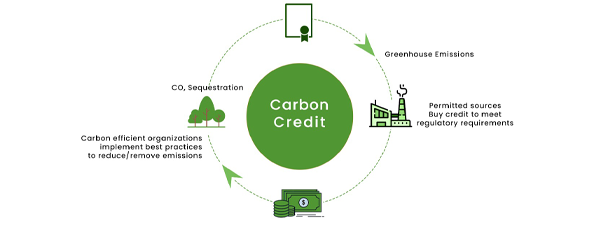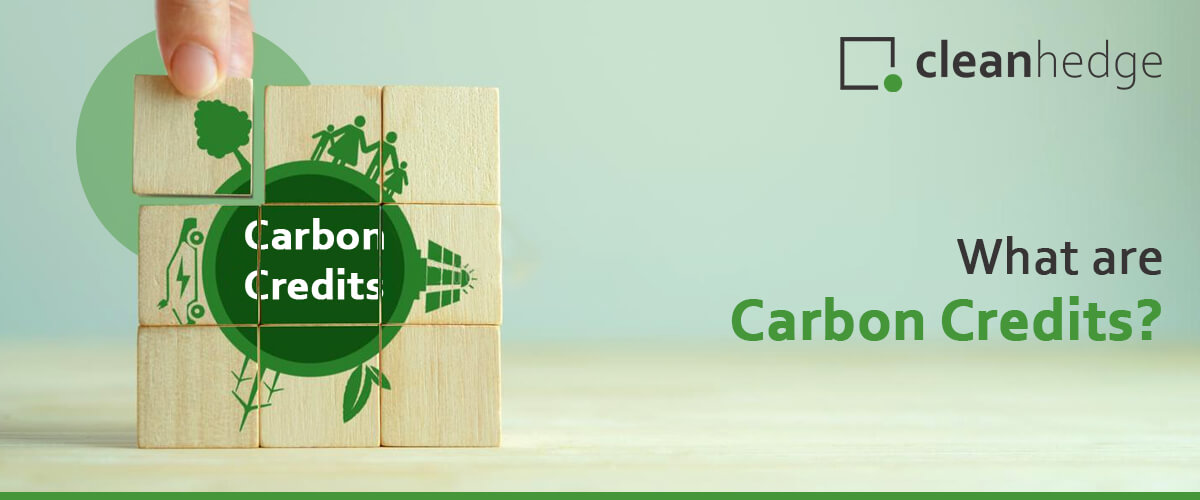34 billion tonnes.
That’s the amount of carbon dioxide the world emits in just one year.
To put the figure into perspective, 1 billion tonnes, (gigatonne) is the mass of approximately 200 million elephants. So, we are releasing greenhouse gases equivalent to 6800 million elephants (give or take) into the atmosphere every year!
Suffice it to say, carbon emissions are a problem. And the world is trying its best to tame the beast. But, since a complete shutdown of all human activities is impossible, we need an innovative way to curb emissions.
Enter carbon credits.
What are Carbon Credits?
Carbon credits or offsets, in simple terms, are certificates or permits to release a certain amount of carbon dioxide or any other greenhouse gas in the atmosphere. They represent an equal amount of C02 that has been reduced or eliminated from the environment. One credit is equivalent to 1 tonne of CO2.
These credits were devised as mechanisms to control greenhouse gas emissions.
Here’s how they work.
To control emissions, governments around the world limit the amount of CO2 or an equivalent greenhouse gas that a corporation can release during its operations. Companies that manage to bring down their emissions below the regulatory limits are awarded carbon credits.
Suppose a manufacturing company is allowed to emit 1000 tonnes of carbon dioxide. However, if it was able to reduce its emissions to 900 tonnes, then the company will receive 100 carbon credits.
The credits are measurable and tradable units. This means that a company with excess credits can sell them to corporations that cannot cut down their emissions immediately. Further, the money earned can be used to fund more sustainability projects in the future.
In this manner, carbon credits function as incentives. For organizations that are successful in reducing emissions, the credits work as rewards with a monetary value. On the other hand, the same credits act as an impetus to reduce emissions for those corporations that have to shell out resources to buy them.
Since carbon emissions are a global issue, the carbon market is not chained by geographical limitations. Corporations can invest in international climate action projects that work towards protecting the ecosystem, developing renewable energy capacity, supporting local communities, and empowering marginalized sections, to offset their emissions.

Why Do Companies Invest in Carbon Credits?
The search for ‘sustainable brands’ has increased by 400% in the last five years. Consumers, investors, and stakeholders are increasingly looking for ESG components in corporations. To survive in this changing landscape, major organizations have set net-zero targets for the future, whether or not mandated by their respective Governments.
Now more than ever, it has become vital for companies to become environmentally responsible. This is why many organizations are turning toward carbon credits as a solution.
However, carbon credits are not a license to pollute.
Reducing emissions is a complex process that takes effort and resources. Many corporations find it difficult to scale down their operations right away to become carbon-free. For such businesses, buying carbon credits is a great short-term solution to compensate for their emissions by financing a sustainable project.
In the long run, however, a company must develop a comprehensive sustainability strategy and integrate it into its business model.
What to Look for While Buying Carbon Credits
Quality- Invest in high-quality carbon credits. Choose credits that are registered by third-party organizations such as Gold Standard, Verra’s Verified Carbon Standard (VCS), Social Carbon and Climate, Community and Biodiversity Standards (CCBS), or authorized by the UNFCC.
Transparency- Credits should be based on projects that are verified and monitored throughout their life. A record of all the data associated with the same is a must. This allows consumers to map out the efficiency of the project and determine whether their resources are being used correctly.
About Clean Hedge
CleanHedge specializes in developing and implementing sustainable projects that reduce, remove or avoid carbon dioxide emissions from the atmosphere. We offer a variety of nature and community-based carbon offset solutions across multiple sectors to aid clients in their journey toward carbon efficiency. We also ensure complete transparency in our operations for your complete peace of mind.
